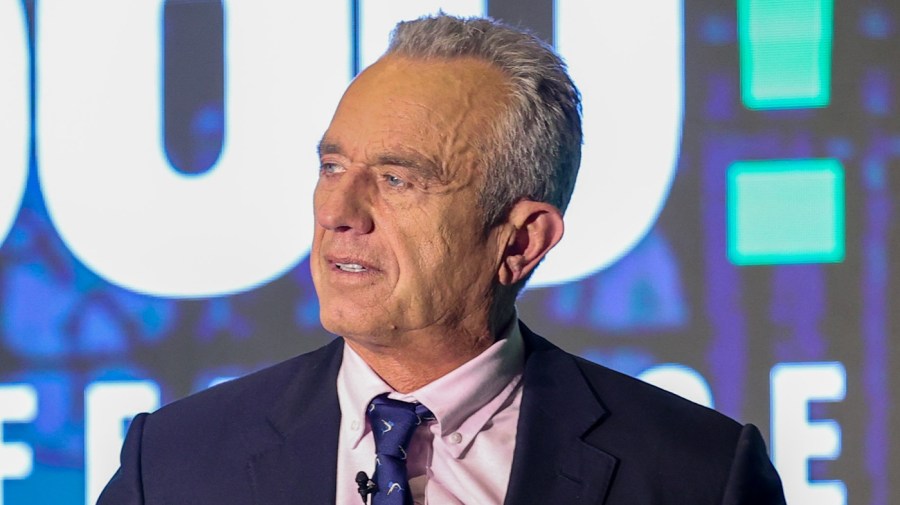
Three of President Trump’s more controversial Cabinet nominees — Robert F. Kennedy Jr., Tulsi Gabbard and Kash Patel — sat for their Senate confirmation hearings last week.
And while Gabbard and Patel — Trump’s picks for the Director of National Intelligence and head of the FBI, respectively — are controversial in their own right, Kennedy, as the nominee for Health and Human Services Secretary, would have the most impact on Americans’ lives.
As the leader of the Department of Health and Human Services, Kennedy, a well-known vaccine skeptic with a history of pushing conspiracy theories, would wield immense power over our nation’s health system.
Over two days of fiery hearings, senators grilled Kennedy over his past statements that vaccines cause autism, Lyme Disease was biologically engineered, support for abortion and more.
To be sure, despite opposition to some of Kennedy’s more controversial positions, a number of senators, including some Democrats, did emphasize that common ground existed.
This was most evident when discussing Kennedy’s stance on the urgency of addressing Americans’ declining health, the dangers of certain foods, the need for increased transparency, and the importance of a diet-oriented approach to fighting chronic diseases.
That being said, senators made no secret of the fact that they were trying to answer whether, if confirmed, Kennedy would genuinely seek to improve our country’s health, or if he would advance his anti-vaccine beliefs.
Kennedy repeatedly tried convincing senators that he would “follow the science” and that if he saw proof that vaccines were safe, he would adopt his stance. However, he often refused to directly answer questions about vaccine safety.
Indeed, when asked by Sen. Bill Cassidy (R-La.) whether he would unequivocally say that certain vaccines do not cause autism, Kennedy danced around it, simply saying, “If the data is there, I will absolutely do that.”
Cassidy, the Republican senator whose vote may prove decisive, eventually tried forcing Kennedy to answer “yes or no” on whether he would reassure mothers that measles and Hepatitis B vaccines do not cause autism. But Kennedy repeatedly stuck to a stock line of “if you show me the data.”
To be clear, the evidence that Kennedy claimed he wanted to see has long been out there.
Vaccines, particularly those with decades of proven safety and effectiveness, such as those for measles, polio and smallpox are one of the greatest scientific achievements of the last century and a half.
Were Kennedy to be confirmed and began casting doubt on these vaccines from his position, it could do tremendous harm to our country’s health.
In that same vein, the hearings underscored that Kennedy’s belief in health-related conspiracy theories extends to other areas.
He claimed that wi-fi causes cancer, that Black people need different vaccine doses than whites — drawing swift condemnation from Sen. Angela Alsobrooks (D-Md.) — and deflected when asked about past statements claiming that COVID-19 was targeted against certain races or ethnicities while sparing others.
While Kennedy’s stance on vaccines is certainly alarming, he also failed to demonstrate a working knowledge of the healthcare system he was tapped to lead.
Asked how he planned to “integrate” Medicare and Medicaid, which Kennedy had said he wanted to do, he admitted that he did not know the answer.
Kennedy also criticized the high costs of premiums and deductibles under Medicaid, seemingly unaware that Medicaid enrollees almost never pay either type of fee.
During the second day of hearings, Sen. Maggie Hassan (D-N.H.) quizzed Kennedy on the basics of Medicare, and after Kennedy largely gave wrong answers, the senator noted, “You want us to confirm you to be in charge of Medicare, but you do not know what that is.”
Criticism from a handful of Republican senators notwithstanding, the majority party generally seemed more accepting of Kennedy’s positions.
His vaccine skepticism was relatively supported by Sens. Markwayne Mullin (R-Okla.), Tommy Tuberville (R-Ala.) and Rand Paul, (R-Ky.) and Kennedy was able to parry GOP concerns over his past support for abortion by committing to following Trump’s policies.
Further, Kennedy’s commitment to making America healthy again by combatting the twin epidemics of obesity and chronic disease brought on by chemicals in our food was relatively well received, even by some progressives like Sen. Bernie Sanders (I-Vt.).
To that end, given the Republicans’ Senate majority, Kennedy figures to have a slight advantage in the confirmation process, although it would be a mistake to say it is a done deal.
Right now, it is possible that three Republican senators — Murkowski, Susan Collins (R-Maine), and potentially Mitch McConnell (R-Ky.), who survived polio — will vote against Kennedy, leaving Cassidy as the swing vote.
Following the hearings, Cassidy made it known that he remains unconvinced. If he votes to reject Kennedy, and he receives no Democratic support, then Vice President JD Vance won’t be able to push him over the finish line.
Ultimately, if confirmed as the nation’s top public health official, Kennedy would have tremendous power. It is my sincere hope that he actually does listen to the evidence regarding vaccines and uses his power and influence to drive much-needed improvements in Americans’ health while avoiding anti-science positions that could endanger millions of Americans.
Pollster Douglas E. Schoen is a partner with the public opinion company Schoen Cooperman Research based in New York and co-author of the book, “America: Unite or Die.”











